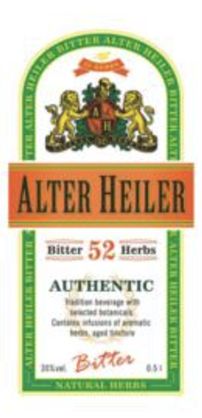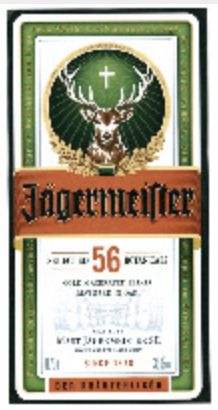Now in its twelfth year, Class 46 is dedicated to European trade mark law and practice. This weblog is written by a team of enthusiasts who want to spread the word and share their thoughts with others.
Click here subscribe for free.
Who we all are...
Protecting IP rights in Russia
Recently, we have seen a wave of disturbing news in the media regarding protection of foreign IP rights in Russia or, rather, the lack of it, report Yulia Yarnykh and Alexandra Galkina
The most extreme implication is that IP in Russia is dead: trade marks of the world famous brands that left Russia have been registered by the third parties acting in bad faith (Alter Heiler v Jägermeister, RU application No. 2022760184); enterprises branded as famous fashion houses are being opened (Gucci Café), literary works that were not allowed for publication in Russia are now available in a summary format (Prince Harry’s “Spare”); and the courts deliberately decrease the amount of compensation for the sale of counterfeit goods of the international brands (Chanel & Dior case).
But is it really that bad? As they say, the devil is in detail, so let’s figure it out.
On the ground
As practising Russian IP lawyers, we believe it would be premature to make harsh conclusions about anarchy in the intellectual property sphere in Russia, even against the backdrop of the recent cases and the attempts by Russian businesses to take advantage of world-famous brands.
Unfair actions are, unfortunately, a fairly common practice that have always existed, and Russia is not an exception to that. However, due to the general situation in the country, the IP cases that we discuss below have caught the increased attention of the public and the media.
There is no denying that the withdrawal of foreign rights holders from the Russian market has provoked an increase in unfair business practices. However, this should not be taken as a harbinger of chaos and lawlessness in the IP field, and we will try to explain why.
Chanel and Dior
The reason for anxiety amongst foreign rights holders was prompted by the Supreme Court of the Russian Federation in February 2023 (Supreme Court Ruling dated 7 February 2023, case No. A63-6499/2021). When considering the case on the recovery of damages for the illegal use of Chanel and Dior trade marks by an individual entrepreneur, the Court pointed out that the calculation of damages to be reimbursed by an individual entrepreneur on the basis of the prices of the original goods was disproportionate to the committed infringement and thus had to be revised.
The plaintiffs did not prove that the defendant’s actions were the only obstacle that prevented them from receiving lost profits, i.e. the money they would have received by selling the original goods. The Supreme Court also stated that the lower courts failed to take into consideration the fact that the parties to the dispute were not competitors, in that the defendant produced obviously fake goods and sold them to a completely different circle of consumers than those who would buy the original goods of the luxury brands.
The decision led to concern among foreign rights holders that such a precedent would make it impossible to recover monetary compensation from the infringers for the violation of their IP rights.
It is noteworthy that Chanel and Dior chose the recovery of damages instead of claiming compensation, which would be more typical for IP infringement cases. The claim for recovery of damages allows the rights holder to receive more financial compensation from the infringer; however, in most cases, it is much more difficult to justify the claimed amount.
In its decision, the Supreme Court did not deny the possibility of recovering damages in the counterfeiting cases but rather raised the standard of proof for the rights holders. At the same time, the recovery of compensation provided for in the Russian Civil Code has always been and remains a reliable option for protection of the infringed right.
In June 2023, Carte Blanch Greetings Limited succeeded in recovering more than R2 million in compensation for the infringement of its rights to the Teddy Bear character (“Mee To You” brand) and to the trade mark from the sellers of furniture for kids marked with the Teddy Bear images and the trade mark. The Commercial Court of Moscow recognised the actions of the defendant as violating the plaintiff’s IP rights and awarded compensation calculated on the basis of double the price of the counterfeit goods (Decision of Commercial Court of Moscow dated 5 June 2023, case No. A40-226040/22).
Gucci Café case
 |
 |
Another headline-making case was the opening of GUCCI CAFÉ in the centre of Moscow, the name of which, according to its owners, should be read backwards (as Efac IccuG). In addition to the name, the café interior was decorated with the prints and designations associated with the GUCCI brand. However, the owners did not stop there and applied for registration of such trade marks as “House of Gucci Restaurant” in Cyrillic (top) and the mark below.
The fashion house, which did not grant any consent or licence to open the café and register the trade marks, took immediate measures and filed an appeal with the Russian Patent Office (Rospatent) demanding the refusal of the applied-for rights. The examination of the disputed applications has not yet been completed; however, the Rospatent expert has already issued an Office Action against the first application (RU Application No. 2023722101).
Famous brands
 |
 |
Generally, we note an increase in the number of trade mark applications that reproduce famous brands or are similar to the brands of those that left or suspended their operations in Russia. For example, Russian distillery Kristall made a statement about the launch of its new product in substitution of Jägermeister liquor and filed an application for the registration of the trade mark Alter Heiler for alcohol (pictured above). The applied-for mark, indeed, gave consumers a similar general impression and evoked associations with the Jägermeister product and its manufacturer (pictured below).
To protect its rights, the right holder filed a Letter of Protest with Rospatent seeking refusal of the trade mark registration. An Office Action was issued during examination and, as a result, the infringer decided to withdraw its application.
Interestingly, in May 2023, the right holder filed a lawsuit demanding recognition of the infringement and recovery of compensation. The claim was admitted for consideration and the first hearing is scheduled for the end of July (Moscow Commercial Court case No. А40-112286/2023).
Copyright
As for copyright infringements, a format of a summary of foreign authors’ works for which no right to publish in Russia was granted has come to attention. The Russian Publishing House “Smart Reading” went that way and released a summary of Prince Harry’s “Spare”.
Depending on the volume and the content of the material, a summary is recognised by Russian courts as copyright infringement if the right of modification has not been obtained from the right holder. However, if the summary only represents a statement of facts, it might be considered legal. It is noteworthy that major Russian publishing houses rejected the idea of releasing summaries of foreign books, appreciating the risks of copyright infringement.
Summary
Summarising the situation with IP rights protection in Russia, we can say that Russian IP law has not undergone any significant changes, and the enforcement authorities and courts continue to protect foreign rights holders and consider cases of infringement of their exclusive rights, including recovering compensation from infringers for the sale of counterfeit goods.
As of today, it appears that the trend set by the Peppa Pig case in 2022 remains: the rights of foreign rights holders are recognised and protected in Russia. Denial of the judicial protection of IP rights for the sole reason that the right holder is a person from the “unfriendly country” has not been sustained.
However, the question for international companies regarding their determination to defend their IP rights in Russia exists. Often, the infringers reckon on the inaction of the “left” rightholders, and not on the refusal of the courts and the enforcement authorities to stand up for IP rights.
For example, trade marks of a foreign rights holder are more likely to be cancelled for non-use if the trade mark owner does not join the litigation and provide evidence of the marks’ use. A cafe squatting on someone else’s brand awareness will continue to operate if the right holder does not send a cease-and-desist letter and file a lawsuit.
A third-party application filed in respect of the already existing foreign brand has more chances for registration if the right holder does not file an appeal against such a registration and or if it did not register its brand in Russia in a timely manner. And this is another signal to foreign companies that registration and protection of their intellectual property is of fundamental importance.
Yulia Yarnykh and Alexandra Galkina are lawyers with Semenov & Pevzner in Russia. Yulia is a member of the MARQUES Brands and Marketing Team
Posted by: Blog Administrator @ 08.05Tags: Russia, Chanel, Dior, Gucci Cafe,


 Sharing on Social Media? Use the link below...
Sharing on Social Media? Use the link below...Perm-A-Link: https://www.marques.org/blogs/class46?XID=BHA5204

